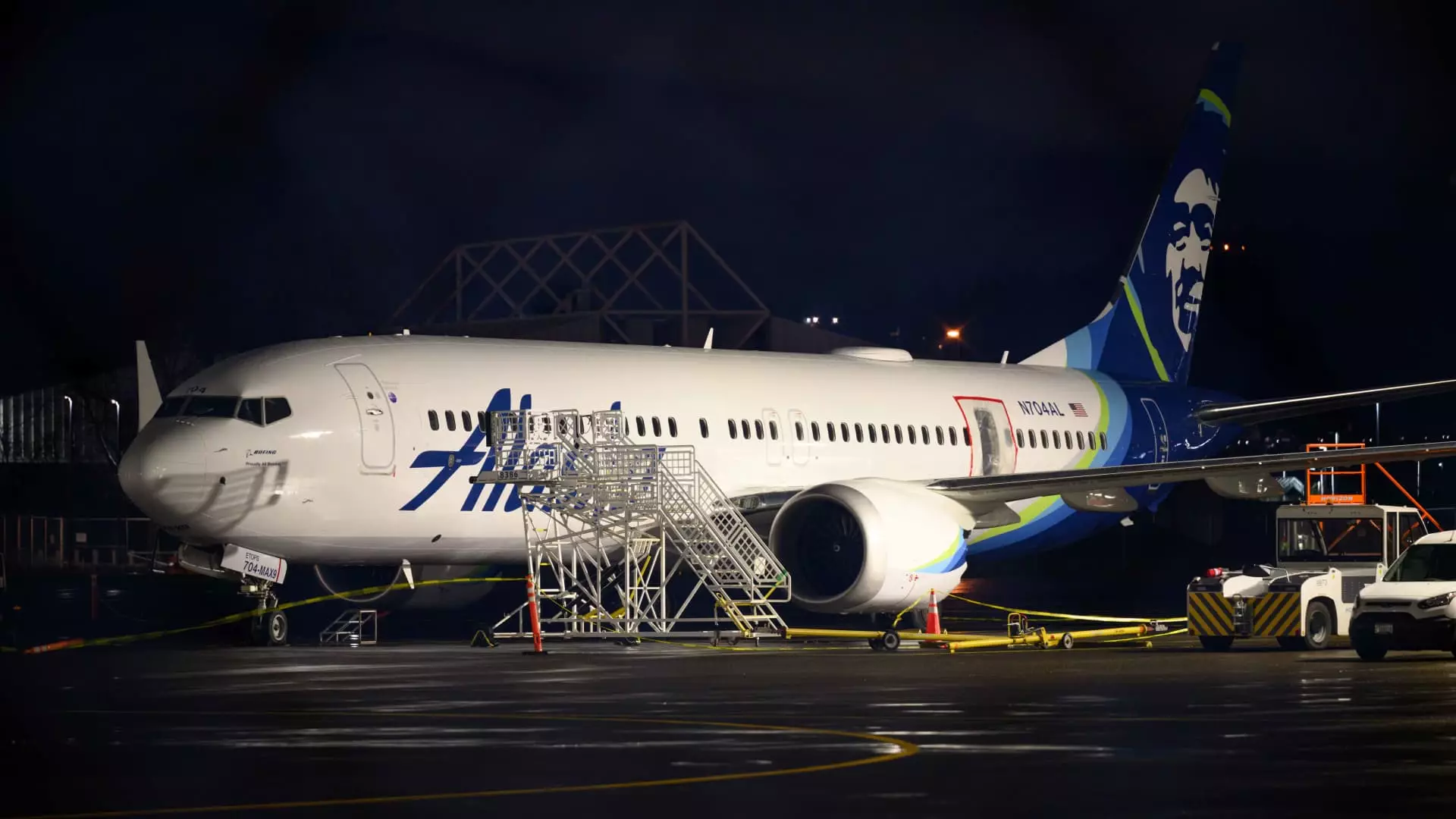The Federal Aviation Administration (FAA) announced on Friday that it will be conducting an audit on Boeing’s production line, following an incident where a door plug blew off an Alaska Airlines 737 Max 9. This comes in the wake of the FAA grounding over 170 Boeing 737 Max 9s, which represents a significant portion of the global fleet. The purpose of the audit is to evaluate Boeing’s compliance with quality procedures, as well as to assess the company’s ability to self-monitor quality control and other aspects of airplane production.
The FAA’s decision to conduct an audit of Boeing’s production line signifies the growing concerns over the company’s quality problems. The incident involving the Alaska Airlines flight highlights the severity of the issue, although no serious injuries were reported. The agency also announced an investigation into the manufacturer in response to this incident, further emphasizing the need for action.
FAA Administrator Mike Whitaker stated that the grounding of the 737 Max 9 and the multiple production-related issues identified in recent years necessitate a thorough evaluation of all options to reduce risk. The FAA’s primary role is to conduct safety checks and issue airworthiness certificates for newly produced Boeing 737s. The agency’s decision to audit Boeing’s production line is an essential step towards ensuring the safety and integrity of the aircraft.
Boeing’s CEO, Dave Calhoun, acknowledged the company’s “mistake” in a statement to staff. He reassured them that Boeing would move past this incident, as well as address the latest defect and the most serious one in recent years. However, this incident is likely to significantly impact Boeing’s reputation in terms of quality control.
The incident on the Alaska Airlines flight, coupled with the ongoing quality problems at Boeing, raises concerns about the efficacy of regulators that oversee the industry. The FAA’s audit of Boeing’s production line is indicative of the increasing scrutiny faced by both Boeing and regulatory bodies involved in aircraft certification.
The FAA’s decision to audit Boeing’s production line and evaluate its compliance with quality procedures highlights the agency’s commitment to ensuring the safety of aircraft. This incident serves as a reminder of the importance of strict quality control measures in the aviation industry. It is imperative that both Boeing and regulatory bodies take necessary actions to address these issues and restore confidence in the safety of Boeing aircraft.

